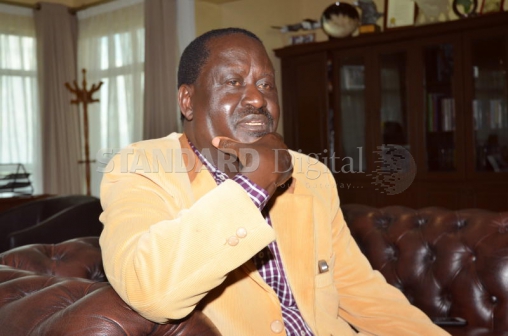×
The Standard e-Paper
Smart Minds Choose Us

NAIROBI: In what could be his last dig at the presidency after a chequered political career, CORD leader Raila Odinga is working on an elaborate political strategy to regain control of the crucial Rift Valley vote ahead of the 2017 General Election.
The former Prime Minister is keen to reap big from the political fall out between Deputy President William Ruto and a number of his allies, including Bomet Governor Isaac Ruto and Kuresoi South MP Zakayo Cheruiyot.